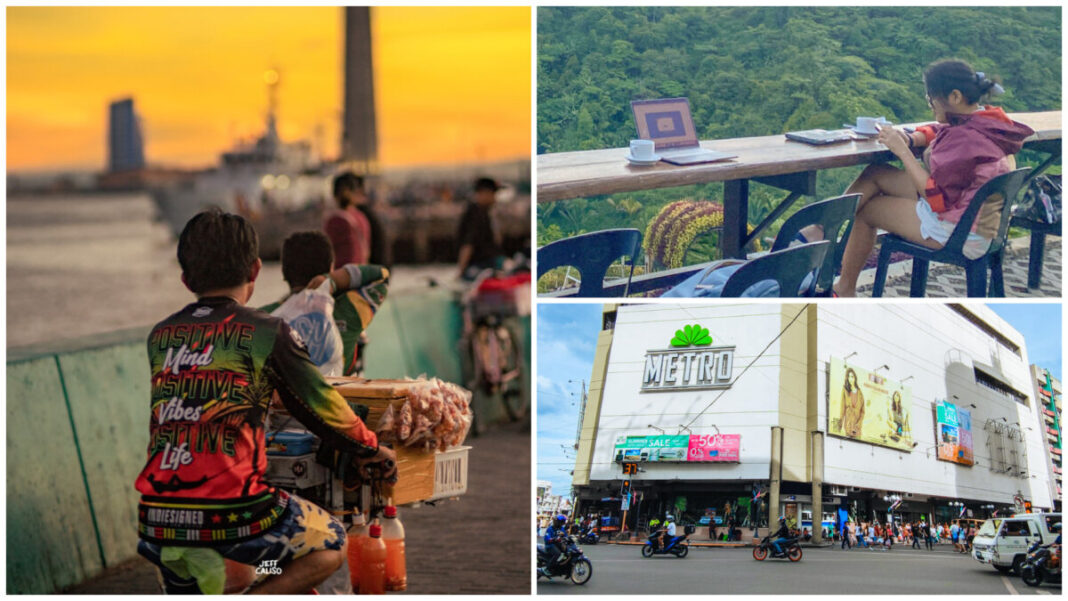Wondering if Cebu is the right place to settle down or start fresh? Here’s what you need to know before making the move.
Cebu City, known as the “Queen City of the South,” is a bustling urban center in the Philippines that attracts expats, digital nomads, and locals alike with its mix of modern conveniences and affordable living. But how much does it cost to live here? Whether you’re a student, a remote worker, or a family planning to settle down, tracking your gasto (expenses) is crucial. From food and transportation to rent and utilities, this guide breaks down the current cost of living in Cebu City, helping you budget wisely.
Cebu Vibes 101
Cebu City is a significant economic and cultural hub, offering a blend of city life and island charm. It boasts thriving business districts, such as IT Park and Cebu Business Park, alongside historic sites and beautiful beaches, all just a short drive away. Compared to Manila, Cebu is generally more affordable, making it a top choice for those seeking a lower cost of living without sacrificing urban amenities. However, prices vary depending on lifestyle, whether you prefer a frugal, mid-range, or luxury living experience.
Your Cebu Budget BFF
Housing & Rent
Rent is one of the most significant expenses, but Cebu offers options for every budget:
- Budget (₱8,000–₱15,000/month) – Small apartments or boarding houses in areas like Mandaue or Labangon.
- Mid-Range (₱15,000–₱30,000/month) – Condos in IT Park or Lahug with better amenities.
- Luxury (₱30,000+/month) – High-end condos or houses in Banilad or Cebu Business Park.
Food & Groceries
Eating habits greatly affect monthly costs:
- Local Markets & Carinderias – Meals can cost as low as ₱50–₱100 per dish.
- Mid-Range Restaurants – A meal for two averages ₱500–₱1,000.
- Groceries (Monthly) – Around ₱5,000–₱10,000 for basic items, depending on dietary preferences.
Transportation
- Jeepneys & Tricycles – ₱10–₱25 per ride.
- Grab/Taxis – ₱100–₱300 for short trips.
- Monthly Commute Budget – ₱1,500–₱3,000 if using public transport regularly.
Utilities & Bills
- Electricity – ₱2,000–₱5,000/month (higher if using air conditioning frequently).
- Water – ₱300–₱800 per month.
- Internet (Fiber) – ₱1,500–₱2,500/month for reliable connections.
Leisure & Miscellaneous
- Gym Memberships – ₱1,000–₱2,500/month.
- Coffee Shop Visits – ₱100–₱200 per drink.
- Entertainment (Movies, Bars, etc.) – ₱2,000–₱5,000/month depending on lifestyle.
City of Yes or Mess?
For many, Cebu offers the perfect balance of affordable living without sacrificing convenience. Expats and digital nomads enjoy the lower costs compared to Western countries, while locals appreciate the job opportunities and vibrant city life. However, traffic congestion and rising rent in prime areas can be drawbacks. If you budget wisely, opting for local markets over imported goods, using public transport, and choosing affordable housing, you can live comfortably even on a modest income.
Keep Kalma and Track Your Gasto
Understanding the cost of living is crucial for effective financial planning, whether you’re relocating to Cebu or simply managing your daily expenses. Inflation and lifestyle changes can impact budgets, so keeping a gasto tracker ensures you don’t overspend. Tools like budgeting apps or simple spreadsheets can help monitor where your money goes each month.
Cebu City remains one of the most livable cities in the Philippines, offering a mix of affordability and urban convenience. While prices have risen in recent years, smart budgeting can make it a sustainable place to live. Whether you’re a student, an expat, or a professional, tracking your expenses will help you enjoy Cebu’s perks without breaking the bank. Before making the move or adjusting your lifestyle, keep this budget tracker guide in mind to make the most of your Cebu experience!

